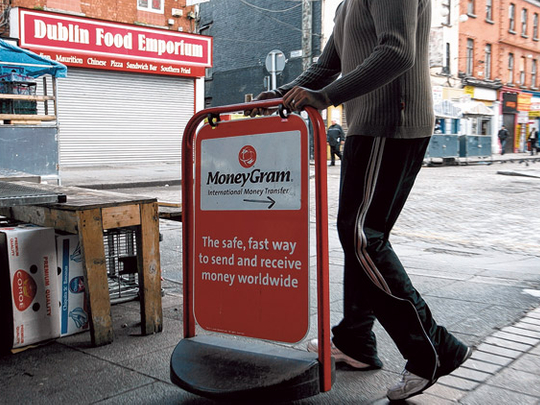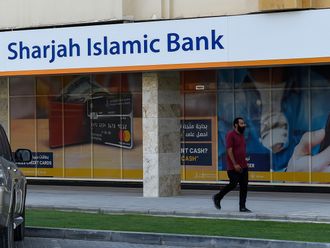
Singapore (Bloomberg) The euro declined for a second day against the dollar and the yen on speculation an election in Ireland will hinder the nation's aid talks with the European Union and the International Monetary Fund.
The single currency also fell versus most of its major counterparts after Moody's Investors Service said it may announce a "multi-notch" downgrade of Ireland, adding to concern Europe's debt crisis will spread. Australia's dollar led losses in higher-yielding currencies as the Irish situation fuelled a decline in Asian stocks.
The yen dropped against the dollar after Yonhap News reported North Korea fired artillery shells near its border with South Korea.
"The risk to markets is that no one knows if the new government next year will stick to the budget that will be announced later this year," said Greg Gibbs, a currency strategist at Royal Bank of Scotland Group Plc in Sydney. "Political uncertainty has caused the positive response out of the package to be short-lived. The euro is struggling."
The euro fell to $1.3556 (Dh4.97) as of 6.37am in London from $1.3627 in New York Monday, when it slipped 0.3 per cent. The 16-nation currency declined 0.1 per cent to 113.42 yen. The dollar rose to 83.70 yen (Dh3.60) from 83.33 yen. Australia's dollar slipped 0.4 per cent to 82.05 yen.
The MSCI Asia-Pacific excluding Japan Index of shares slid 1.8 per cent. Japan's financial markets were shut for a holiday.
‘Misled' voters
Irish Prime Minister Brian Cowen, who on the weekend said the government would ask the EU and IMF to bail out the nation's banking system, announced yesterday he will seek elections early next year. Parliamentary support for Cowen evaporated Monday after the Green Party, his junior coalition partners, called for a January election and said he "misled' voters over the past two weeks.
Ireland became the second euro country to seek a rescue as the cost of saving its banks threatened a repeat of the Greek debt crisis that destabilised the single currency. A rescue package that Goldman Sachs Group Inc. estimates may total 95 billion euros (Dh475 billion) failed to damp speculation that Portugal and Spain would follow Ireland in also tapping the fund set up by the EU and the IMF after the Greece rescue.
"Ireland represents a relatively small part of the EU, but concerns about contagion to larger economies, especially Spain, remain a concern for investors," said David Forrester, a currency economist at Barclays Capital in Singapore. "Potential problems with Spain's domestic banks, or Cajas, will likely remain a weight on the euro."
Spanish banks
Spanish banks may struggle to refinance covered bonds as the European Central Bank's plan to reduce liquidity supports forces lenders to tap debt markets at record-high yield spreads, Moody's said yesterday. Spanish lenders have about 70 billion euros of covered bonds coming due in the next two years, according to Moody's.
The cost of insuring against losses on Portuguese government bonds rose the most in almost two months as traders looked past Ireland to see which country will be next to need assistance. Credit-default swaps tied to Portuguese debt jumped 41 basis points to 458 basis points Monday, the biggest increase since September 27, according to data provider CMA.
Ireland's aid will "crystallise more bank-contingent liabilities on the government balance sheet, and increase the Irish sovereign's debt burden," Moody's analyst Dietmar Hornung wrote in an email yesterday.












